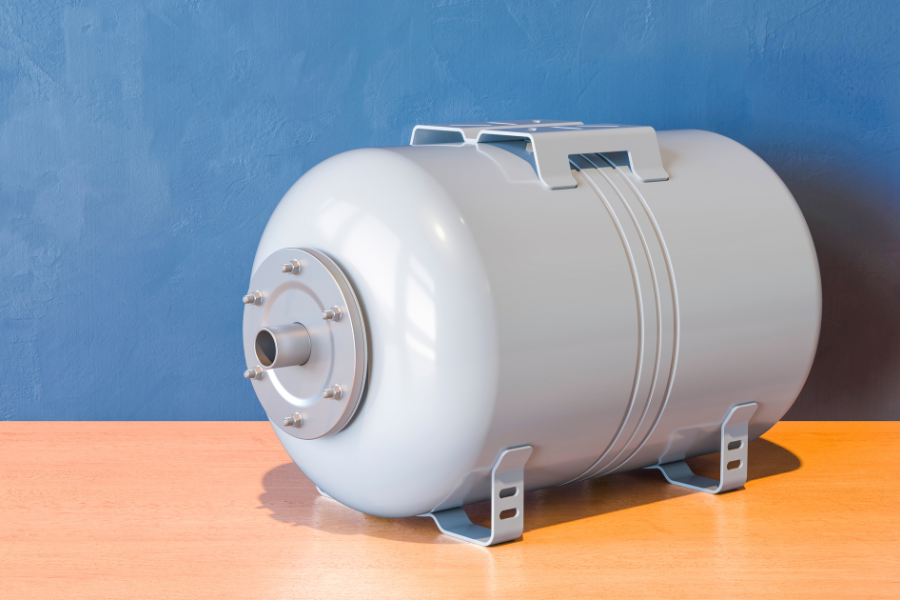Non-pressure tanks are integral to the operations of various industries, providing safe and efficient storage solutions for a wide range of liquids and substances that do not require pressurization. Constructed from steel and protected with advanced corrosion-resistant coatings, these tanks are designed to withstand the challenging environments they are often exposed to. Whether in the chemical industry, food and beverage production, or waste management, non-pressure tanks offer durability, reliability, and safety, making them essential components in the infrastructure of many businesses. This article explores the diverse applications of non-pressure tanks in different industrial sectors, highlighting their importance and the benefits they bring to each field.
Non-Pressure Tanks in the Chemical Industry
Non-pressure tanks play a crucial role in the chemical industry, where the safe storage of various substances is essential. These tanks are regularly used to store large volumes of raw materials, intermediates, or finished products that do not require pressurization but must be protected from contamination and environmental exposure. Steel tanks with additional corrosion protection, such as epoxy coatings or cathodic protection systems, are particularly favoured in this sector. These protective measures ensure that the tanks can withstand the harsh, often corrosive, environments typical of chemical storage, thereby extending the lifespan of the tanks and maintaining the purity of the stored substances.
Role of Non-Pressure Tanks in the Food and Beverage Industry
In the food and beverage industry, non-pressure tanks are widely used for storing ingredients such as oils, syrups, and liquid sweeteners. These tanks are critical for maintaining the quality and safety of these products during storage. Steel tanks with specialized corrosion protection are preferred to prevent any potential contamination of food products and to comply with strict hygiene standards. The tanks are often coated with food-grade protective layers that resist corrosion and are easy to clean, ensuring that they meet regulatory requirements. This makes non-pressure tanks an indispensable part of the infrastructure for companies involved in large-scale food and beverage production.
Non-Pressure Tanks for Water Treatment Facilities
Water treatment facilities rely heavily on non-pressure tanks for the storage of treated water, chemicals used in the treatment process, and wastewater. These tanks must be constructed from durable materials that can resist the corrosive effects of the chemicals and elements they contain. Steel tanks with additional corrosion protection are ideal for these applications, as they offer both strength and resistance to the harsh conditions present in water treatment environments. The tanks help ensure that the water treatment processes remain efficient and that the stored water is kept safe and uncontaminated, making them vital components of the industry.
Applications in the Agricultural Sector
Non-pressure tanks are also widely used in the agricultural sector for storing liquids such as fertilizers, pesticides, and water for irrigation. These tanks are essential for ensuring that these substances are readily available for use when needed, particularly during peak agricultural seasons. The use of steel tanks with corrosion-resistant coatings is critical in agriculture, where exposure to chemicals and environmental factors can quickly degrade unprotected steel. By employing non-pressure tanks with enhanced protection, agricultural companies can safeguard their investments in essential liquids and ensure that their operations run smoothly without interruptions caused by tank failures.
Storage Solutions for the Oil and Gas Industry
In the oil and gas industry, non-pressure tanks are used for the storage of various petroleum products, including crude oil, lubricants, and by-products. These tanks must be designed to handle large volumes while ensuring the safety and integrity of the stored materials. Steel tanks with additional corrosion protection are particularly valuable in this industry, where the stored substances can be highly corrosive. The protective coatings applied to these tanks help prevent leaks and spills, which could lead to significant environmental damage and financial loss. For companies operating in the oil and gas sector, non-pressure tanks provide a reliable and cost-effective solution for bulk storage needs.



